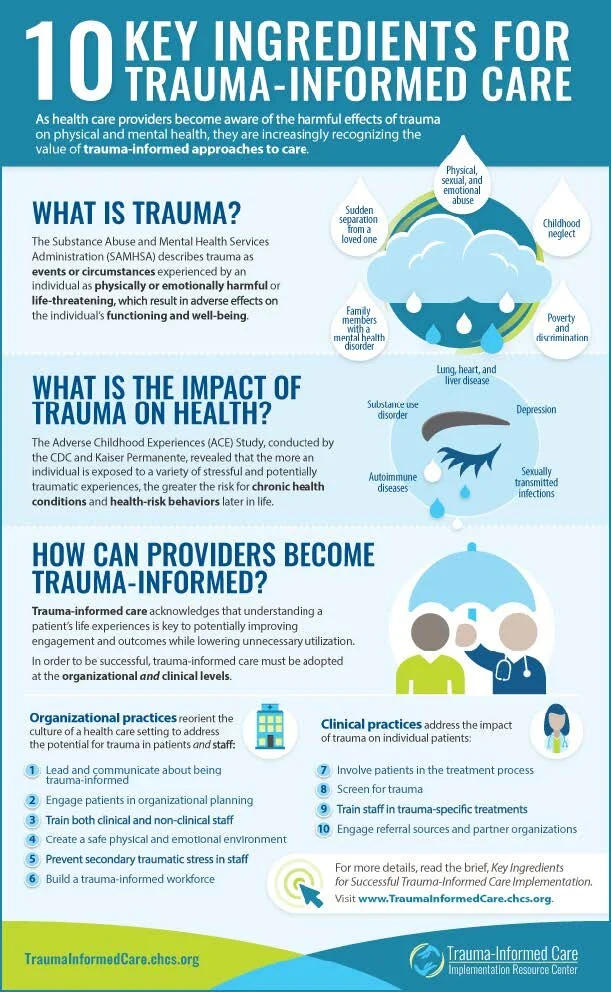35 million children have experienced one or more types of trauma in their lifetime
$671 billion is spent per year in healthcare and lost productivity spent on trauma
With these statistics in mind, it’s clear that trauma remains a critical issue that continues to be a widespread, harmful and costly public health problem. Trauma, in its various forms, can result from violence, abuse, neglect, loss, war and other emotionally harmful experiences. Moreover, an individual experiencing trauma may sustain adverse effects on their mental, physical, social and emotional well-being. All age groups, gender, socioeconomic status, race, ethnicity, or sexual orientation can experience trauma. Therefore, when this happens, trauma informed care (TIC) stands ready at the frontlines to ensure that survivors of trauma are not retraumatized by those trying to help.
Trauma informed care shifts the conversation from “What’s wrong with you?” to “What happened to you?” By taking a trauma informed approach to care, healthcare providers have a complete picture of a patient’s life situation and with this knowledge, are able to provide effective healthcare services with an emphasis on healing. But, trauma informed care does not solely apply to survivors of trauma. Trauma informed care, when streamlined throughout an organization, can effectively support staff from burnout, secondary traumatic stress and moral distress. Additionally, advocating for trauma informed approaches within an agency teaches and nurtures resilience among healthcare staff who are constantly exposed to trauma in their work. Staff are able to receive the rest and recovery needed to address these ‘heavy’ issues, and are encouraged to focus on the positive aspects of their work.
As a Summer 2021 FLIA for Youth and Shelter Services (YSS), I aim to take YSS from an organization who has trauma informed practices to a full-scale trauma informed agency through the creation of a report that identifies gaps in current YSS policies and provides recommendations for enhancing trauma informed care. Founded in 1976, YSS has remained committed to building a world where the youth and families are valued and empowered to stand strong. In order to implement their mission statement, YSS follows five foundational principles: commitment, collaboration, compassion, innovation, integrity and a “can do” spirit. Under this framework, YSS has implemented over twenty different programs, all distinguished under either: Before and After School & Summer, Counseling and Treatment, Education and Prevention, Emergency Services, Family Foster Care and Adoption, Parenting and Life Skills or Transitional Services. YSS’ intricacies makes it an essential organization within Iowa that addresses youth issues, as well as employs a myriad of staff who work with children. Because of this, the heart of my project is to make sure that YSS staff and volunteers are aware of trauma informed care and its application to their lives. Moreover, it’s to let YSS staff and beyond continue to be hopeful for what they can do for the youth and families and to assure them that they are not alone in this work.



